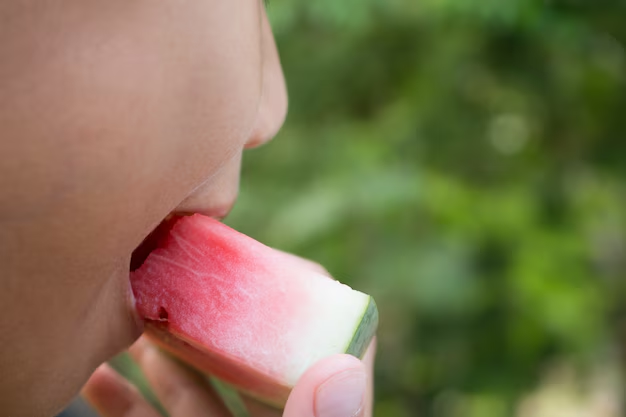Your Guide to Is Watermelon Bad For Diabetics
What You Get:
Free Guide
Free, helpful information about Diabetes FAQ and related Is Watermelon Bad For Diabetics topics.
Helpful Information
Get clear and easy-to-understand details about Is Watermelon Bad For Diabetics topics and resources.
Personalized Offers
Answer a few optional questions to receive offers or information related to Diabetes FAQ. The survey is optional and not required to access your free guide.
Can Diabetics Enjoy Watermelon Without Worry?
For those living with diabetes, managing diet is a balancing act that sometimes feels more like a triathlon. Choosing which fruits to indulge in can be tricky since some are loaded with sugars that can spike blood glucose levels. Watermelon, with its juicy sweetness, often falls into a gray area for many. So, is watermelon really bad for diabetics, or is there room for moderation?
Understanding Watermelon's Glycemic Impact
Watermelon is primarily composed of water, around 90%, which makes it low in calories but not in carbohydrates. With a high Glycemic Index (GI) value of 72, watermelon might appear daunting for those watching their glucose levels. However, it's essential to understand how GI values work: they measure how quickly a food increases blood sugar levels, not how much sugar is present. The Glycemic Load (GL), which considers the actual carbohydrate content per serving, offers a clearer picture. A typical serving of watermelon has a GL of around 5, which is considered low.
Incorporating Watermelon Wisely
The key to enjoying watermelon is moderation. Small, pre-portioned servings can ensure you benefit from the fruit's hydrating and antioxidant-rich properties without experiencing a concerning blood sugar spike. Pairing watermelon with a source of protein or healthy fat, such as nuts or cheese, can also help mitigate any potential glucose increase by slowing down digestion.
The Nutritional Perks
Watermelon isn’t just about its refreshing taste. Packed with vitamins A and C, it supports immune function, skin health, and vision. Additionally, its high lycopene content offers antioxidant protection, potentially reducing the risk of certain cancers and heart disease.
Broader Lifestyle Considerations
Dietary management is just one aspect of living with diabetes. Access to resources, financial support, and educational tools can be crucial in maintaining a healthy lifestyle. Let’s explore some options that can help.
Financial and Educational Resources for Diabetics
Living with diabetes can be expensive, but there are several avenues for reducing costs and managing financial stress:
- 💸 Government Aid Programs: These can help cover medical expenses or provide subsidized access to diabetic supplies.
- 📚 Educational Grants and Scholarships: Look for opportunities specifically designed for those pursuing studies in health or nutrition.
- 💳 Debt Relief Options: For those overwhelmed by medical debt, consulting with a financial advisor about consolidation or relief programs could provide significant peace of mind.
- 🍎 Health Savings Accounts (HSAs): These accounts offer tax advantages when used for medical expenses, including diabetic supplies and doctor visits.
🔍 Tip: Research local non-profits dedicated to supporting diabetics, as they often provide free resources and support groups.
By understanding the nature of foods like watermelon and utilizing available resources, managing diabetes can become a more manageable part of life. Empower yourself with knowledge, make informed dietary choices, and seek out the financial assistance you deserve. 🍉
What You Get:
Free Diabetes FAQ Guide
Free, helpful information about Is Watermelon Bad For Diabetics and related resources.

Helpful Information
Get clear, easy-to-understand details about Is Watermelon Bad For Diabetics topics.

Optional Personalized Offers
Answer a few optional questions to see offers or information related to Diabetes FAQ. Participation is not required to get your free guide.


